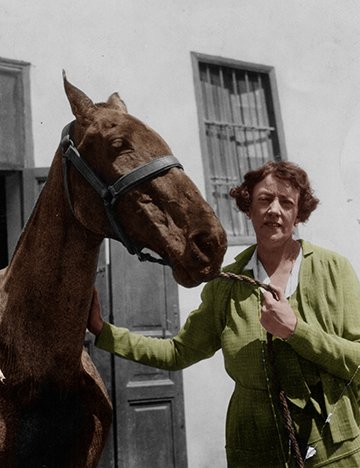Brooke at a glance
Brooke is creating a world where working horses, donkeys and mules are free from suffering and have a life worth living.
why good animal welfare is important
There are 100 million equines working worldwide, earning an income that around 600 million people rely on to put food on their tables and send their children to school. These animals are suffering from exhaustion, malnutrition and disease as a result of poor health and welfare resources.
Brooke works with owners, communities, local health providers and policy makers to create both immediate and long-lasting improvements to the lives of working animals and their owners.
Horses and donkeys collecting rubbish in a New Delhi slum, India
From brick kilns and coal mines, to villages impacted by drought and extreme poverty, working horses, donkeys and mules are the backbone of communities and provide a vital contribution to economies, but are suffering from injury, malnutrition and disease.
Brooke works hard to deliver significant and lasting change, even in some of the world’s most challenging areas. We use our expertise to train and support owners of horses, donkeys and mules, local vets, farriers, harness makers and animal traders to improve standards of care.
read about our work in the field
How we work directly with equines and their owners, their communities, vets and other animal healthcare providers.
Brooke, Action for Working Horses and Donkeys was established by Dorothy Brooke in Egypt in 1934 to help hundreds of emaciated British ex-warhorses she found, abandoned in Cairo after the First World War. Most were too frail to be saved, but Dorothy’s compassion meant their lives ended peacefully. This catalyst led her to grow and expand our work.
Today, Brooke is the world’s largest working equine welfare organisation, with headquarters in the U.K. and offices in Africa, Asia and Central America. We make both immediate and long-term changes to transform the health and welfare of vulnerable animals, working with communities to prevent welfare issues, training local health providers to support them, and influencing policy makers to improve welfare laws.

On arrival in Egypt in 1930, Dorothy Brooke, the wife of a British cavalry officer, sought out the former war horses that had been put to work in Cairo and beyond when the conflict ended in 1918. Her pleas in a letter to the editor of the then Morning Post (now The Telegraph) were heard, and with help from the British public, Dorothy raised enough money to buy back 5,000 of the horses. She then went on to set up a free veterinary clinic in Cairo in 1934 – the Old War Horse Memorial Hospital – and so Brooke's work began.
Brooke in numbers
- 100 million: the number of working horses, donkeys and mules all over the world
- 600 million: the number of people whose lives are supported by working equines
- 13: the number of countries we work in across Africa, Asia and Latin America
- 1.5 million: the number of working horses, donkeys and mules reached by Brooke services in 2023/2024
- 32 million: the wider equine population benefiting through Brooke's advocacy and institutional strengthening including national policies and legal frameworks
- 10,301: The number of communities we work with
- 5,000: The number of animal health service providers, vets, paravets and farriers we trained in the last five years
- 8,709: the number of brick kilns we work in
Our vision
Our vision is of a world in which working horses, donkeys and mules are free from suffering and have a life worth living.
Our mission
Our mission is to achieve immediate and lasting positive change to the lives of working horses, donkeys and mules and the communities that depend on them.
Our strategic goals and objectives
Goals
- Transforming equine welfare in communities.
- Increasing the visibility and inclusion of working equids.
- Strengthening sustainable animal health systems.
Our Theory of Change
In order to sustainably improve equine welfare we recognise the complex interaction between the equine, the equine owning communities, and the system within which they co-exist. We believe that change to human behaviour needs to happen at all levels in order achieve transformational change for the equines and the communities that rely on them for their livelihoods.
Long term impact:
- Strengthened livelihoods and resilience of equine owning communities.
- Improved behaviour and compassion of equine owners/users and society.
- Strengthened existing animal health systems and services.
- Improved policies, legislation and practice conducive to animal welfare are implemented.
See also
In order to sustainably improve equine welfare we recognise the complex interaction between the equine, the equine owning communities, and the system within which they co-exist.
The welfare of working horses, donkeys and mules the world over is an overlooked - yet crucial - part of keeping families out of extreme poverty. It’s time to take note.
Some useful and surprising facts about our equine friends. Want to know how to tell the difference between a horse, donkey and mule? Read on!
